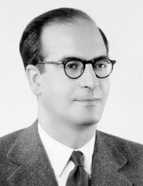

While dealing with the analysis and understanding of physical and geographical factors, and aspects of mentality, class or social group, JBM also rejected the determinism of any of these factors as a single explanation, looking to elements of personal responsibility. His position is ultimately close to that of Raymond Aron, whom he greatly admired, along with his denunciation of any type of “opium of the intellectual” (i.e. Marxism). An analysis of his first articles, including his first major work previously referred to, shows that JBM adopted this position very early on. It brought him close to Jaime Cortesão, the historian of the global vision and the need to explain reality, as is materially evident in his work Os factores democráticos da formação de Portugal. On 25 January 1953, JBM was a speaker for the Historians’ Group at a dinner in homage to Jaime Cortesão, when he returned from exile. Later his admiration for Cortesão would be expressed in his study “The Theory of History in Jaime Cortesão”, published in Prelo (1984). In other writings, he explained the importance he also attributed, in his historical studies, to Alexandre Herculano, Almeida Garrett, Eça de Queiroz, Rebello de Silva, Oliveira Martins, António Sardinha and Silva Cordeiro.
The prefaces he wrote for his works give further evidence of his theoretical approach. In the preface to the first edition of his bachelor’s thesis he rejected the notion of a singular, determinant explanation, calling for a concrete study of society as a point of departure, insisting on concrete explanations, with concrete reasoning, and substantiated or sustainable hypotheses. According to JBM, the constitution of historical science lives by the questions each epoch poses, and in this respect he invoked Herculano, whom he considered a “most distinguished historian”. Provisional studies were not false or useless, but steps in a synthesis under construction. He also recorded his thanks to two of his professors at university, Silva Marques and Magalhães Godinho. His theorization continued, criticizing from the outset the perspective of the “great man” without a study of the environment, the society, the administrative mechanism, the economic structure. An individual conception of history should coexist with a concrete study of the period, of the conditions inherited from the past, and of notions of continuity, the “fundamental law of historical methodology”. On this basis one could evaluate the tenor of a period, whether it represented a break or a continuity. It was from this perspective he aimed to study the actions of Pombal, and to introduce the notion of a phase in the period of his government. In this light he would study a period that historiography had generally treated as a whole, by trying to determine the economic phases that constituted it.
